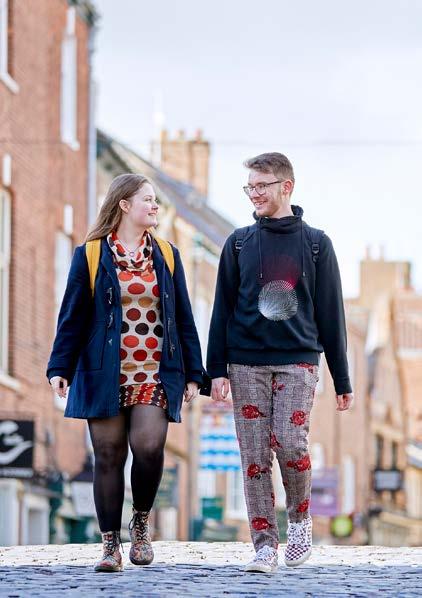INTERNATIONAL ACADEMIC EXCELLENCE PROGRAMME
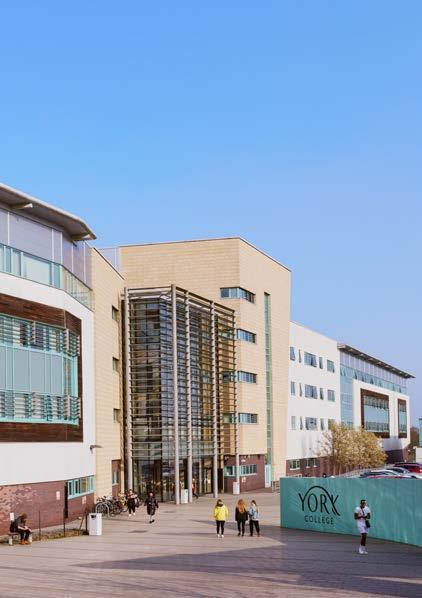


I am delighted you are considering joining us at York College & Unuversity Centre for the next steps in your educational journey. We have a long, successful history of providing very high-quality academic education that supports students to progress onto excellent universities after they complete their study with us.
What you will find at York College & University Centre is a grown-up, welcoming environment that will enable you to develop into a well-rounded young adult ready for what lies ahead of you. The wide range of support that we provide to our students ensures that not only are they successful academically, but also socially and personally.
The City of York is a wonderful place to live and study. It is a very safe city that reflects a simpler time when communities thrived and people enjoyed being around others. It is true that York is a very tourist friendly city, but there is also a rich culture created by those who live, work and study in York. The city has close to 50,000 students studying in a variety of educational institutions and our students enjoy a great lifestyle in the city.
We are looking for academically bright students who are willing to work hard to achieve their educational goals. Our dedicated and knowledgeable International Team, alongside our support staff and expert teachers, will support you throughout your time at the College. I am certain that if you put the effort into your studies you will have a great future ahead of you.
I am certain we will be the right place for you to excel, and I look forward to meeting you when you come to York.
With all my best wishes
Ken Merry - Principal and Chief Executive






Established in 1827 as The York Mechanics’ Institute, York College has been the centre of the local and regional skills solution for nearly 200 years. Occupying a state-of-the-art £60 million campus on the edge of the City of York, the College is integral to supporting the development of the region.
The College has a long, rich history of excellent academic performance, leading to a wide range of students securing places at prestigious, competitive universities. This continues today.
Leaders at the College ensure students are at the heart of everything we do. Leaders see it as their role to support our students to achieve their education and career goals, whether that is going into employment, progressing through their career, reskilling, or moving on to university study.
We are recognised locally, regionally and nationally as an organisation that makes a positive difference to the lives of our students, our community, and the York and North Yorkshire economy.
We have a wide range of A Levels on offer to prospective students – the largest in the region. Our A Levels can be studied in (virtually) any combination. Depending on your career ambitions, there are some combinations that we would recommend, but ultimately the choice is yours regarding the subjects you decide to study.
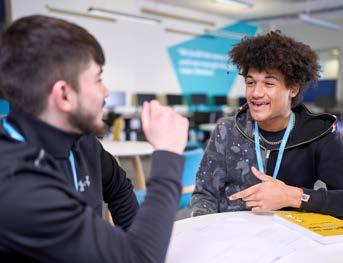
York is a historic, walled cathedral city in the North of England. Since its founding as the Roman settlement of Eboracum in 71 AD, the city has remained continuously inhabited, evolving through Roman, AngloSaxon and Viking influences to become the vibrant home of modern-day Yorkshire folk.
York is a city that perfectly blends a rich history with modern vibrancy, making it an ideal place to study, live and thrive. York consistently ranks as one of the safest and most welcoming cities in the UK. With a strong sense of community, low crime rates and excellent public services, students can feel at ease while exploring the city’s charming streets, historic landmarks and green spaces. The city offers a supportive and inclusive environment for international students and newcomers. From bustling cafes and cultural festivals to studentfriendly bars and local markets, there are endless opportunities to connect with others and feel at home.
With its picturesque charm, winding streets and historic landmarks, this enchanting city has been captured in numerous famous films and TV series – including Harry Potter, Chariots of Fire and the Netflix series Bridgerton. The cathedral (known as York Minster) is an incredibly old, culturally significant church, with the site being used for religious purposes since 627AD. The Archbishop of York is the second-highest office in the Church of England.
There is also a strong history between York and confectionery, with the Terry’s Chocolate Orange, Fruit Pastilles and KitKat all originating from the city. These worldwide exports are just the headlines of what is otherwise a fascinating

journey through famous confectionery. Although some of the manufacturing of confectionery has left the city, the rich history is still celebrated throughout and enjoyed the world over.
When studying A Levels with us at York College, your achievement of these qualifications will open a wide range of opportunities for you to continue your educational journey at a wide range of great universities. However, what you will benefit from by studying at York College is our unique partnership with the University of York.
A top performing UK university that is part of the Russell Group of Universities, the University of York is a world class university in every sense of the phrase. A leading research and teaching university, frequently ranked as one of the best universities in the world and a Top 10 university in the UK.
Our partnership with the University of York provides our international students a guaranteed interview for a place to study an undergraduate degree at the university. Entry to the university will still be subject to achieving the grades required at A Level, based on the university’s standard offer. The opportunity to impress the admissions tutors with your academic achievements and your passion for the subject you are keen to study will potentially give you the edge in securing a place at this highly competitive and prestigious university.

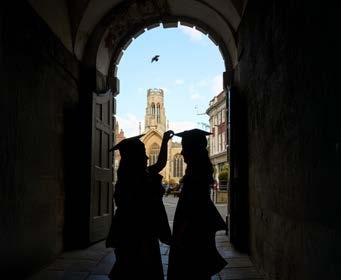
York is a wonderful city providing you with everything you could possibly want. Therefore, when you visit York College and the City of York for the first time, it is almost inevitable that you will fall in love with both. To help you with this, we have put together a comprehensive offer for international students considering studying A Levels with us.
We will host prospective students for a two-week immersive experience in York (see page 40 for details). The focus of the summer school will be developing English language skills and understanding of the English culture, specifically any local culture nuances. Your experience will include time spent in the College to become more familiar with the learning environment you will use when you join us, exposure to the local sights and attractions, day trips to London and Edinburgh, plus much more.
Our summer schools are open to anyone aged 15 years and older, with conversational (or better) English language skills. Summer school students will be supervised during their time in York, but they will travel to and from York (at the start and end of the summer school) independently from the summer school arrangements. Parents, guardians and carers are encouraged to accompany students to travel to York.
The cost of the summer school can be found in the International Contacts and Costs section of this prospectus.
With one of the widest choices of A Level courses in the North of England, we are confident that whatever your ambitions are, we will be able to find a subject combination that will support you in achieving your educational and professional goals. All of the details of our courses can be found outlined later in this prospectus.
Through the support of your agent and our dedicated International Team, you will have support every step of your journey with York College.
We only work with a handful of carefully selected and vetted agents and our relationships with them are based on the best interests of prospective students. Therefore, you know that if an agent has a relationship with York College, you should be in good hands.
Our International Team are on hand to help you with any issues or queries you may have. They are very experienced in supporting overseas students to settle and get the most out of their stay in York.
During your time studying with York College you will have the opportunity to do ‘home stay’ where you will live with a host family, based in or around York. They will provide you with accommodation, food, refreshments and support whilst you study with us. Most of our host families are traditional English families who know York and the surrounding areas well and therefore, they are able to ensure you benefit from their knowledge whilst you are staying with them.
We attempt to place overseas students with the same host family in both years of study wherever possible. All our home stays are based on 44 weeks accommodation. In some cases this can be extended beyond the original agreement – the earlier you request this the more likely it is we can secure this for you (please note any extension beyond 44 weeks is likely to carry an additional cost).
Accommodation cost is in addition to the tuition cost. Details of both are shown in the International Contact and Cost section.
The City of York has an extensive range of accommodation options available to visitors, from apartments available to rent on a long term basis, to bed and breakfast options, or hotels offering long-stay rates. There are also a range of AirBnB properties available.
Should a student not wish to take home stay accommodation as an option, they can arrange their own accommodation directly with an alternative supplier. York College works closely with hotels across the city that provide preferential, long-term rates for our international students. We can provide these details upon request, however, any accommodation arrangements made directly with a hotel are the responsibility of the student and their family. York College will not be involved in these arrangements. Individual accommodation providers set their own pricing arrangements for this accommodation independently from York College.

When you join the College, you will be allocated to a Progress Coach who will be able to support you in your studies. They will provide you with advice and guidance about your next steps, what you need to work on within your studies, and support you to realise your ambitions. They will also challenge you to do your best during your studies and support you, should you need help and assistance whilst you are studying with us.
Our dedicated team of experts are available to provide you with comprehensive support tailored to your needs. The specific arrangements will depend on your individual requirements, and the cost will be based on the actual expense incurred by the College to provide the additional support.
For lots of young people joining York College from overseas, they have very clear ideas about what they want to do next and how they are going to get there. However, should you be less sure, or you need to change your plans, we have a team of experienced and skilled Careers Advisors who can help you with your next steps and support you through your application and interview process. For students taking advantage of our unique arrangement with the University of York, our team can help you prepare for your subject interview with the university to ensure you give yourself the best possible chance of being offered a place. If you are aiming to apply for another top university where you will undertake an interview or complete an entrance exam (such as Oxford, Cambridge, or other Russell Group Universities or any medical, vetinary and dentistry programmes) then our brilliant team can also help you prepare so you can be successful.
We will support you with your university application via the UCAS system. The cost of your first UCAS application is included in your second year study fees. This will enable you to apply for a range of universities and a range of courses, including taking advantage of the unique agreement we have with the University of York.
We recognise that being away from home for an extended period of time and the pressure associated with studying A Levels can sometimes mean our students need well-being support. Our team of advisors are on hand to offer you the support you need and will be very happy to ease your worries or concerns by working with you to overcome them.
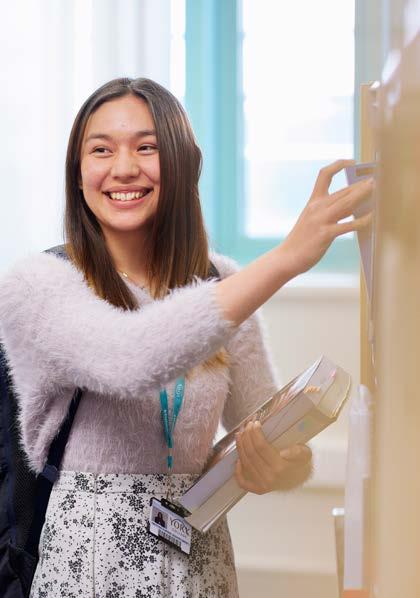
Whilst you will be living and studying in the wonderful City of York when you join the College, you will also find that the city is remarkably well connected across the UK.
As a major railway hub since the mid-19th century, the city is less than a two-hour train journey from London and less than a two and a half hour train journey to Edinburgh – with Manchester and Leeds easily accessible too.
However, what is not to be missed is the areas of natural beauty surrounding the City of York, including the world-famous Yorkshire Moors, the seaside towns of Whitby and Saltburn, and the famous Brontë Country which are all only a short distance away.
For those interesting in exploring Northern England, there are a wide range of short and day trips available from York. Alternatively you can explore on your own using public transport. Information on booking day escorted trips can be provided by the local tourist information centre or via the International Team who will be able to provide support.
30DARLINGTON mins
DURHAM 45 mins
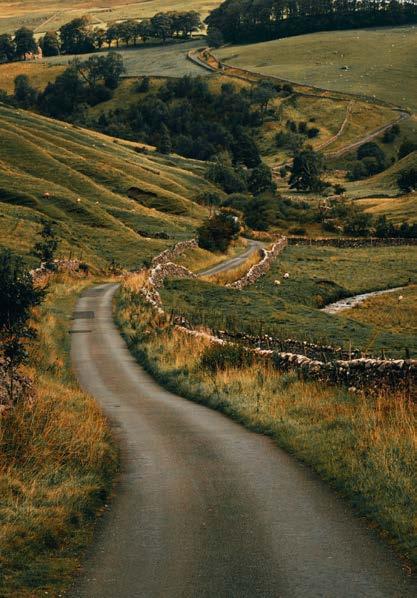
HARROGATE 33 mins
MANCHESTER1hour,40mins
LEEDS22mins
NEWCASTLE 1 hour
EDINBURGH2hours,24 mins
SCARBOROUGH 50mins
York’s central location means exploring further afield while studying here is easy, with great rail links and easy road access to some of the UK’s most beautiful scenery and vibrant cities.
SHEFFIELD1hour
HULL 1 hour, 10 mins
22DONCASTER mins
LONDON 1 hour, 50 mins


Our A Level courses are designed to be the perfect qualification for you to use as entry to university.
They are a widely accepted, internationally recognised qualification that give you the knowledge and understanding you need in a range of subjects. We have a very broad offer, and you can study our A Levels in virtually any combination.
As part of your application to York College you will have the opportunity to speak to a Careers Advisor, or your placement agent about the subject combinations that will enable you to thrive in your intended career.
When you join York College you will select three subjects and plan to study them for two years. Upon completion, you will have qualifications that are accepted by all universities in the UK, as well as many across the world.
You will study your A Levels alongside other students who may or may not be on our International Academic Excellence Programme.

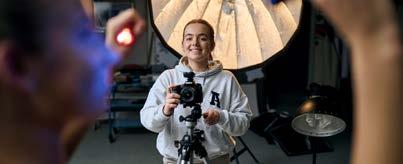


This programme provides you with the opportunity to learn, express yourself imaginatively and develop a range of skills in relation to drawing, painting, sculpture and mixed media. There are two components: personal investigation 60% and externally set task 40%. You produce a body of work for all units, from initial research, through development and experimentation towards a finished piece with your achievements celebrated in an end of year Creative Show.
This course will allow you to learn a variety of creative techniques and processes in art, design and photography. There are two components: personal investigation 60% and externally set task 40%. Coursework will include the use of camera equipment, studio work, computer software presentation skills, bookmaking, building a portfolio and a digital sketchbook of creative ideas and personal project work. Your achievements are celebrated in an end of year Creative Show.
This course provides you with the opportunity to learn and develop a range of skills in relation to felt making, silk paper making, hand and machine embroidery, various methods of print and surface decoration, fabric manipulation, pattern cutting and garment construction. There are two components: personal investigation 60% and externally set task 40%. You will produce a body of work for all units, from initial research, through development and experimentation towards a finished piece.
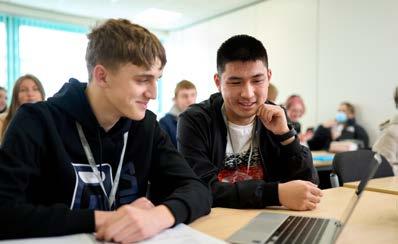


This course covers the role of an Accountant within an organisation. You will learn about the financial aspects of business operations as well as build knowledge and understanding of key concepts and principles and techniques of accounting that apply to real-life scenarios. You’ll develop the ability to solve problems logically, analyse data, make reasoned choices and communicate your findings effectively. Content includes analysis and evaluation of financial information, budgeting, accounting for limited companies, capital investment appraisal, and preparation of financial statements.
Engaging with many of the issues relevant in today’s society, studying Business gives you the knowledge and tools needed to understand how businesses are created, managed and become successful. It gives an understanding of the problems businesses face and encourages you to develop analytical and evaluative ways to solve them. You’ll study units including marketing, operational and financial management as well as analysing the strategic position of a business, choosing a strategic direction and managing change.
This A Level encompasses subjects associated with both micro and macro economics, including the market system, market failure and government intervention, the national and international economy, labour markets, poverty and inequality, financial markets and monetary policy to give you a broad knowledge of economics. As well as being equipped to handle modern life, having this qualification shows you have the ability to analyse and understand economic subjects, as well as sound financial knowledge and essay-writing skills.

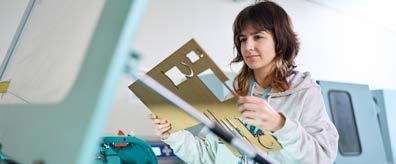


Computer Science is an exciting, modern subject relevant to many disciplines and careers. You will gain an understanding of different levels and types of programming languages and scripting. Strategies for problem-solving are studied, together with information management techniques. You will also gain an understanding of computer hardware and software functionality as well as a detailed appreciation of how computer architectures operate. The course addresses all stages of the life cycle of computer software.
This course is a balance between creative design and design theory. The substantial creative project element allows you to steer the direction of your work down a more graphical route or a more 3D resistant materials route depending on your preference. For both years the component work is tailored to ‘Product Design’ from initial design to manufacture and marketing through a balance of theory work and creative project work. You’ll learn about materials, processes and techniques, and topics include the effects of technological developments, design history, design practices and sustainability which are assessed in exams. You’ll undertake a design and make project in each year and develop your CAD (Computer Aided Design) and manufacturing skills.
The course covers the underlying core principles of design and technology with the focussed pathway of engineered and electronic products/systems. Throughout this course you will develop an understanding of how engineered products and components function and operate; the properties of engineering materials and why they are selected for specific applications; engineering processes and application; and commercial viability when designing and manufacturing engineering products and/or systems. The topics you will cover include: identifying requirements of an engineered solution, engineering design thinking and communication, material and component considerations, engineering manufacturing process and techniques, and the viability of engineering design solutions.
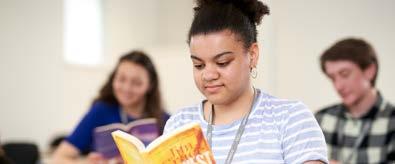

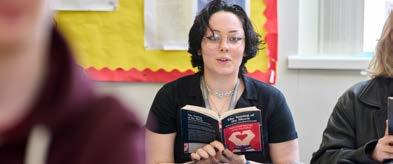

The content of this course builds on English Language GCSE and examines new, more varied aspects including accent and dialect, gender, World English and sociolinguistics. You will analyse a range of texts, identify language features in written and spoken text and explore various types of language, with consideration of audience, purpose and genre for different social groups. There is exploration of how children acquire language and how language changes over time. You will develop your academic and analytical writing skills and complete a piece of creative writing with commentary.
Your study will focus on Comedy and Political and Social Protest Writing with texts chosen from genres of drama, prose and poetry including Shakespeare’s The Taming of the Shrew, Jane Austen’s Emma and Jim Crace’s Harvest. Within the study of Comedy you’ll explore concepts such as the role of the hero, how language highlights comedy with wit and wordplay, and how structure leads from disorder to order. Studying Political and Social Protest Writing you’ll consider issues of power and powerlessness, political and social protest issues, rebellion against those with power, gender politics and issues of social class.




Studying Germany and West Germany 1918-89 you will learn about key political changes and their impact on German economic, social and cultural developments. You’ll look at The Rise and Fall of Fascism in Italy, c.1911-46, and explore how the British government took on more responsibility for people’s health and welfare within the context of the Industrial Revolution. The coursework module allows you to focus on a key area of historical debate of your choice.
You will gain an understanding of how law influences many aspects of our lives, how our laws are made, applied and changed. You will study topics including the legal system (civil courts, criminal courts and sentencing), criminal law (fatal and non-fatal offences plus a range of defences), law making and tort law (civil liability, negligence and damages). Study will also include the concepts and ideas which underpin our laws and a range of Human Rights laid down in both UK law and the European Convention of Human Rights.
Psychology is the scientific study of mind and behaviour, attempting to explain a wide range of different processes, behaviours and mental states, ranging from the function of memory to the risks in forming addictions. Topics you will study include memory, attachment (emotional development in children), social influence, research methods (how do we study the mind?), psychopathology (explanations and treatments of depression, Obsessive Compulsive Disorder and phobias), addiction, biopsychology (an introduction to the structures of the brain) and relationships.
Sociology is the study of society and social institutions. Within each topic area you will examine the role each institution has played in the past, its current role in society and its influence on society as a whole. You’ll also examine how each institution influences groups as well as individuals. These ideas are explored from a range of different perspectives such as Marxism and Feminism. Topics studied include looking at families and households, education, research methods, beliefs in society, crime and deviance and sociological theory.

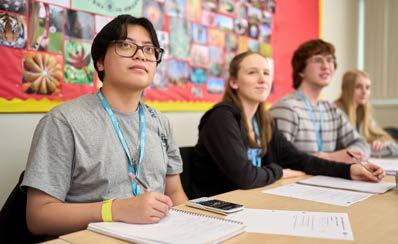

This A Level covers topics familiar from GCSE, such as algebra and trigonometry, and new ones like calculus. In the first year there are two components containing 70% Pure Maths and 30% Applied Maths (Mechanics and Statistics). For Pure Mathematics the topics include proof, algebra, graphs, binomial expansions, trigonometry, logarithms, calculus and vectors.
For Mechanics the topics include kinematics in one dimension, working with forces and Newton’s Laws. For Statistics the topics include working with data from a sample to make inferences about a population, probability calculations, using binomial distribution as a model and statistical hypothesis testing. The three components of the second year are Pure Mathematics with Mechanics, Pure Mathematics with Statistics and Pure Mathematics with a Comprehension.
A Level Further Maths is recommended to anyone who loves their maths as it will give you an opportunity to extend the maths you are learning in A Level Maths. During the course you will study three components: pure maths, mechanics and statistics. In year one you will study Pure Mathematics with topics including complex numbers, matrices, vectors, planes and sequences. Mechanics topics include forces in equilibrium (including moments), friction, projectiles and Newton’s Laws of Motion. Statistics topics include probability distributions such as poisson, geometric and the normal distribution.
In the second year all students study Pure Maths, with students opting for one major option in Applied Maths. Option 1 is to major in Mechanics, minor in Statistics and option 2 is to major in Statistics, minor in Mechanics. In the exam the major option carries twice the weight of the minor option.
Focusing on problem-solving and interpretation of maths in the real world this course builds on GCSE Maths. You will consider and tackle mathematics in meaningful contexts through financial applications and statistical ideas that can support work in other subjects. It can be studied in the first or second year of your study programme.
Units include Statistics and Algebra, Probability and Estimation, Data Analysis and Modelling, Financial Planning and Management, Problem-Solving Approaches, Using Technology and Spreadsheets, and Displaying Data and Critical Analysis of Data in Media.
This qualification is equivalent to an AS Level in terms of UCAS points and is for students who need to be equipped for the mathematical and quantitative demands of other courses and employment.
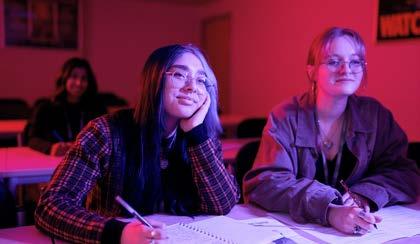


Film Studies is an academic subject that teaches theoretical, cultural and historical approaches to film. In the first year you will develop your appreciation and understanding of film as a dominant art form and as a vastly commercial venture. You will also create your first film from pre-production to post-production. In the second year you will continue to deepen your knowledge and appreciation of film by continuing your Hollywood and British film studies, but you will broaden your understanding beyond ‘mainstream’ cinema. You will create your second film from script to screen, using industry standard equipment.
This course allows you to investigate different important issues in the media. The first year introduces you to key concepts, you will explore the way we interact with the media as audiences, find out about the companies and institutions that dominate the media industries and learn about the techniques used to make media products, such as camera work, editing, layout and design. You will also explore the different media sectors: television, magazines, advertising, film, radio, newspapers, music videos and video games. The second year introduces you to some of the interesting theories that we use to understand the role of the media in society, culture, politics and economics.
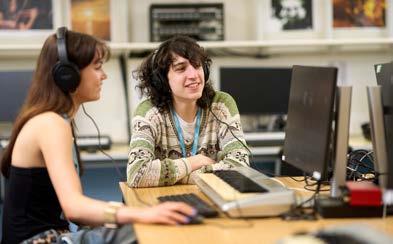
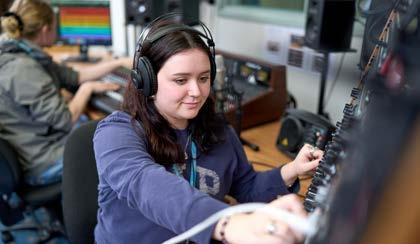

A Level Music teaches you to develop performance and composition skills and to further develop your knowledge of a variety of music including classical, film, jazz and popular music.
This course is designed to extend the skills of performing, composing, listening and appraising. There are three parts to the course: Performing, where you will perform one or more pieces in a recital lasting at least eight minutes; Composing, where you will demonstrate your ability to create and develop musical ideas with technical control and expressive understanding, and Appraising, which comprises of a written exam including aural extracts.
This course is grounded in Popular Music covering all styles from Rock and Soul to EDM and Commercial Pop. It follows several areas of study which are assessed through coursework projects, practical and written exam questions. The main areas of focus are: operating a professional recording studio and learning all associated techniques; capturing, producing and mixing recordings; composing with music technology; sampling, synthesis and effects; the principles of sound and audio technology; the development of popular music styles and the history and development of recording and production technology.

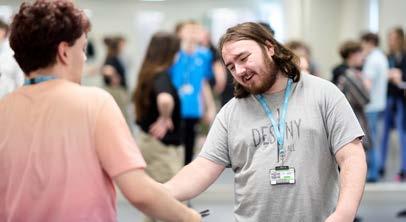

If you have a creative instinct for communicating your views through drama, are keen on acting, writing or on the visual and technical side of theatre then Drama & Theatre Studies A Level is a good course choice for you.
The range of work will involve practical performance, devising and working from scripts, writing about theatre you have seen and plays you have read, and the theory and practice of practitioners, playwrights and directors.
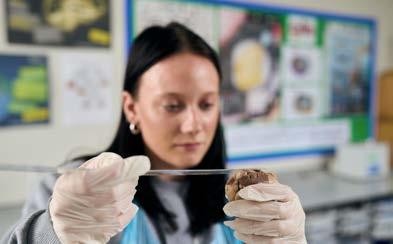
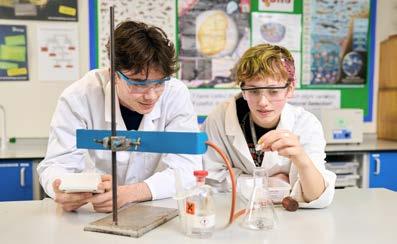

This course builds on your knowledge of GCSE Biology with topics including cells, biological molecules, physiology, genetics and biodiversity. You will develop your practical skills alongside biological theory and applications. This provides you with the knowledge and understanding to study biology at university as well as crucial transferable skills such as teamwork, problem solving and application of mathematical techniques. Biology works well with most subject combinations, and in particular Chemistry, Geography, Psychology and Physical Education A Levels. You would benefit from studying Core Maths alongside Biology A Level if you have not opted for Maths A Level.
A Level Chemistry builds on ideas and concepts taught at GCSE with topics having an emphasis on real life chemistry. Alongside the theoretical content you will develop your practical skills, learning specific techniques, as well as how to use specialist apparatus and instruments.
Topics include Elements of Life, Developing Fuels, Elements from the Sea, The Ozone Story, What’s in a Medicine, The Chemical Industry, Polymers and Life, Oceans, Developing Metals and Colour by Design.
This A Level builds on your knowledge of physics from GCSE. First year topics include simple electrical circuits, fundamental particles, quantum mechanics, waves and optics; as well as Newtonian mechanics, which deals with forces, motion, energy and power. In the second year, additional topics include radioactivity and thermal physics. The additional topic is ‘Turning Points in Physics’: this investigates some important experiments which helped to define our current knowledge of physics. You will also develop your practical skills and learn specific techniques.
During this course you will learn about the Earth’s composition and internal processes by studying the geological history of the Earth, and by analysing fossils and rock structure. In the first year, you will learn about minerals, the three main groups of rocks, fossil formation, volcanic eruptions, and geological time. In the second year, this knowledge is extended into further details about the formation of different rock types, engineering geology and mining, earthquakes, and the evolution of life and climate on earth. Geology is taught in a purpose-built geology laboratory with access to a large number of specimens.
Geography A Level is ideal for those fascinated by the world we live in. You will study both physical and human geography and learn a range of transferable skills such as quantitative and qualitative analysis, communication skills e.g. report writing, and fieldwork skills. In the first year you will study Water and Carbon Cycles, Contemporary Urban Environments and Changing Places. In the second year new topics include Hot Desert Systems and Landscapes, Hazards and Global Systems and Global Governance. Fieldwork is an essential, enjoyable and rewarding aspect of the course.
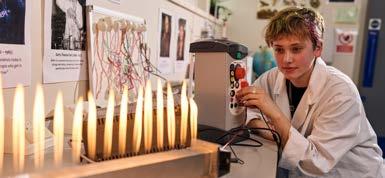
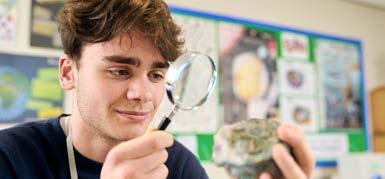

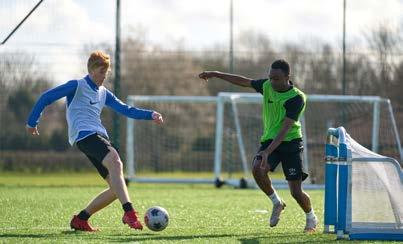
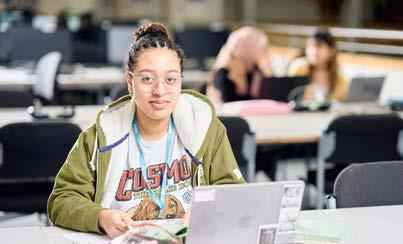

You’ll study a variety of different topics to develop and enhance your sport knowledge including applied anatomy and physiology, sport psychology, exercise physiology, biomechanics, sport and society and the role of technology in sport.
Delivery in class is 100% theoretical with assessment via exams constituting 70% of the course and the remainder through coursework and practical sports performance. You must be able to evidence participation in your chosen competitive sport through video footage taken throughout the duration of the course for the practical element. We can support in practical evidence gathering for York College Sports Development Centre students.
Throughout your time studying with York College, you will be supported by a range of dedicated staff who will ensure that you thrive in your studies.
The International Team will be your first point of contact during your application and joining stages. They can be contacted by email on international@yorkcollege.ac.uk
When you join the College, you will be provided with a Progress Coach who will be the person to support and encourage you during your time at the College. They will provide you with their contact details during your induction session at the College.
The cost of our international programme is broken down as follows:
Covering the cost of English Language tuition, local accommodation with three traditional English meals a day, trips, visits and tips, our summer school costs £7,500* per person. This cost does not include travel (international or domestic) to and from York, this remains the responsibility of the student. Subject to availability as places are limited.


The delivery of three A Level subjects, tutorial and pastoral support costs £12,500* per annum.

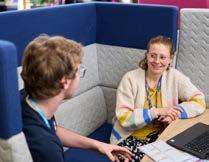
Additional private tuition delivered on a 1:1 basis around the main timetabled classes is available at a cost of £65* per hour and can be arranged with the International Department when required. Terms and conditions apply.

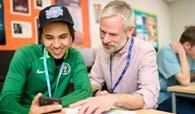
Available to students who need it, price available upon diagnosis and once a support plan is approved. The cost of this varies on the actual support needed.

Home stay accommodation is priced at £8,800* for the academic year (based on 44 weeks accommodation). Any request for accommodation longer than 44 weeks is subject to availability and host family agreeing.
NOTE: All payments are due in Great British Pounds Sterling and will need to be paid prior to the start of activity or tuition. Payment for academic tuition (both A Level and additional tuition) and home stay accommodation is due in full before the start of the study.
Deposits are required at the time of confirmation:
• Places on the Summer School will be held by a non-refundable deposit of £2,000 per person.
• Places on the International Academic Excellence Programme (including or excluding home stay accommodation) will held by a non-refundable deposit of £5,500 per person.
* Prices correct at the time of publication (May 2025) but subject to change until contracts have been agreed and signed. Costs are reviewed annually; please contact international@yorkcollege.ac.uk for the most up-to-date information. Payments made as deposits are non-refundable.
Every care has been taken to ensure the accuracy of the information given in this prospectus. However, York College cannot accept any responsibility for the consequences of any error or omissions in its content.
If, in the opinion of the College authorities, circumstances necessitating a change in the course provision occur, an advertised course may be changed or the content of any course may be modified.
York College reserves the right to cancel courses. Where this happens we will endeavour to offer an alternative.
This prospectus is for students applying to join us in September 2026 and was correct at the time of going to press – May 2025.
Thanks to everyone who contributed to this publication, either by providing information or photographs. Thanks to all students and staff featured.
The College is committed to equality for all and widening participation for disabled students, and ensuring that all students have access to a high quality learning experience.
To help us achieve this please make sure that you let us know what you need so we can make reasonable adjustments to help you succeed.
York College is committed to equality of opportunity. The aim is to create an environment in which people treat each other with mutual respect, regardless of: age; disability; family responsibility; marital status; race; colour; ethnicity; nationality; religion or belief; gender identity; sexual orientation; trade union activity; unrelated criminal convictions.

Courses advertised are correct at the time of publication, but are subject to change and may not run if there is not enough student interest in a particular course.
